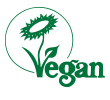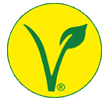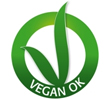Vitamin B12: Vegan Supplements
Since vitamin B12 is found almost exclusively in animal products, vegan B12 can often only be obtained through supplements. In order to meet this requirement, many manufacturers sell vitamin B12 supplements today which are completely vegan, some of which have the corresponding certification too.
Surprisingly, however, there are still a number of supplements to which this does not apply. Unfortunately, this is not always obvious at first glance; vegans who want to be absolutely sure should always check the product label and look out for the corresponding vegan certification.
This article provides all the necessary information for selecting a vegan supplement, and will include details on different active ingredients, various questionable additives and dosing.
Are Vitamin B12 Supplements Vegan?
Today, the vitamin B12 used in supplements is only created biochemically with the help of microorganisms; it is not, as many people think, extracted from animal products. Vitamin B12 as an ingredient is thus vegan. Supplement animal testing is also never required, with the exception of B12 creams.
Non-Vegan Ingredients in Vitamin B12 Supplements
Certain vitamin B12 products contain non-vegan ingredients. Among the most obvious are:
- Lactose
- Gelatine
- Intrinsic factor
Lactose is used above all in vitamin B12 lozenges, gelatine in the shells of capsules and the coating of pills, and intrinsic factor as a rare additive in special supplements.
These obvious animal products aside, there are two further ingredients that can be created from either animal or plant sources:
- Magnesium stearate
- Stearic acid
For economic reasons, plant products are most often used – but this is not always the case. Some manufacturers clearly note the ingredients’ origins – e.g. “plant-based magnesium stearate” – but through contact with numerous manufacturers we can verify that the absence of this classification does not always mean that the substance contains animal products. In general, these ingredients should be labelled as “suitable for vegans” on the packaging.
The least criticised additives are typically found in B12 injections and capsules; the most criticised in tablets. Vegans are therefore better off taking injections or capsules rather than tablets.
Vegan Certifications and Symbols
Various vegan organisations give out certifications of approval, which guarantee that a product is vegan and are clearly demonstrated through symbols on the packaging. Fortunately, these certifications are found on more and more B12 products today.
Certificate | Issuer |
 | Vegan Society (UK) |
 | European Vegetarian Union (Switzerland) |
 | Vegan OK (Italy) |
The Correct Dosage of Vitamin B12 for Vegans
Provided that there are no pre-existing absorption or usage disorders, vegans can take vitamin B12 supplements to cover their daily requirements. The Vegan Society (1) recommend the following dosages for oral supplements: 10 µg once daily or 2000 µg once weekly.
This is higher than the current recommendations of the IOM (now the National Academy of Medicine, USA) and the NHS/BNF (UK) of 2.4 and 1.5 µg per day respectively; it is, however, more in line with the current scientific understanding of the actual daily requirement of vitamin B12 (2).
As a result of the way in which vitamin B12 is utilised in the body, these recommendations need to be treated with caution. From a dose of 10 µg, only an average of 1.6 µg vitamin B12 is actually absorbed – which is obviously not enough to cover the daily requirement.
The real intake is made up of a combination of two absorption pathways: intake through the transport protein intrinsic factor (IF) and absorption via passive diffusion. Around 1.5 – 2 µg is absorbed through the intrinsic factor, because the number of corresponding receptors in the intestine is limited. A further 1 percent of the dose is absorbed through passive diffusion into the blood.
Accordingly, the following doses are recommended to prevent B12 deficiency:
- At least 250 µg daily
- Or 2500 µg per week
Higher dosages make sense for those with absorption disorders and in times of high stress. There is also clearly a difference between a B12 deficiency as a result of a vegan diet and one caused by malabsorption, where daily doses of 500 – 1000 µg are normal and necessary.
Overview of Dosages
The following table is a summary of the possible dosages of different supplements:
Type | Dosage | |
Oral (tablets, capsules, drops) | 250 µg daily | |
Injections | Cyanocobalamin 100 µg every two weeks or 1000 µg per month | Hydroxocobalamin |
Are all Active Ingredients in Vitamin B12 Supplements Vegan?
Every vitamin B12 active ingredient is vegan. Hydroxocobalamin is produced by microorganisms, from which cyanocobalamin is produced chemically. Methylcobalamin and adenosylcobalamin are typically manufactured in a third step from cyanocobalamin, which is the most stable form of vitamin B12.
The individual active ingredients can be used with varying success by the body. There is no difference between active ingredients in vegan and non-vegan supplements; for more information, readers can feel free to refer to the corresponding articles on supplements and individual supplement forms.
Vitamin B12 Supplements: A Must for Vegans?
Veganism can be one of the healthiest diets and today receives ever more support from nutritionists the world over. However, vitamin B12 is the only nutrient which is practically impossible to obtain from the vegan diet – a fact that unfortunately remains largely unknown. As a result, the level of B12 deficiency amongst vegans is extremely high: 40-90%. While the risks of B12 deficiency are often underestimated, nutritionists and vegan associations worldwide are in agreement: B12 supplements are highly recommended for vegans. With this tiny addition, a healthy vegan diet is complete.
Regular Intake is Important
Since the vegan diet delivers hardly any vitamin B12, the body’s store of B12 is depleted over time. The amount provided by oral supplements is often not enough to cover more than the recommended daily intake and should thus be taken regularly. Over time, this quantity will slowly fill up the body’s B12 store, giving the body a cushion at times when there is no B12 uptake. Nevertheless, it is still advisable to continuously take vitamin B12 – exactly as one would through an omnivorous diet.
Taking supplements daily is easy to view as a burden; but when you consider the many positive effects of a vegan diet – for a person’s health, the environment and of course animals – it is indeed a very small price to pay and most vegans are happy to oblige.
Sources
- http://www.vegansociety.com/lifestyle/nutrition/b12.aspx
- Mustafa Vakur Bor, Kristina M von Castel-Roberts, Gail PA Kauwell, Sally P Stabler, Robert H Allen, David R Maneval, Lynn B Bailey Ebba Nexo „Daily intake of 4 to 7 µg dietary vitamin B-12 is associated with steady concentrations of vitamin B-12–related biomarkers in a healthy young population“ Am J Clin Nutr 2010 91: 3 571-577; First published online January 13, 2010. doi:10.3945/ajcn.2009.28082.


